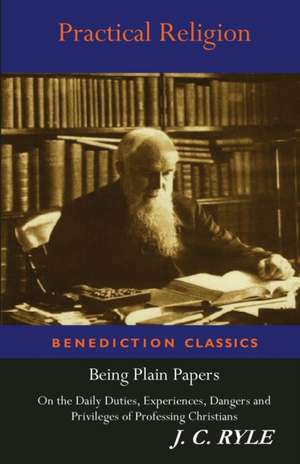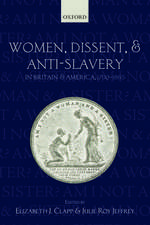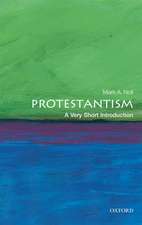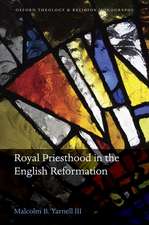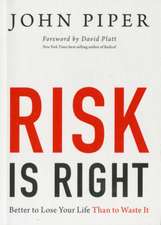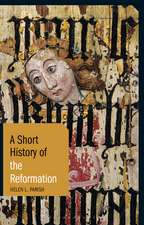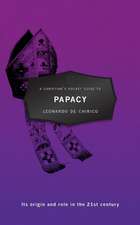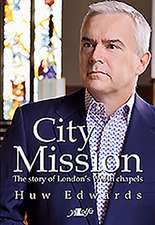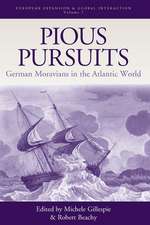Practical Religion
Autor J. C. Ryleen Limba Engleză Paperback – 20 apr 2016
He was educated at Eton and the University of Oxford, where his career was unusually distinguished. He was Fell exhibitioner at Christ Church, from which foundation he matriculated on 15 May 1834. He was Craven scholar in 1836, graduated B.A. in 1838, having been placed in the first-class in liter humaniores in the preceding year, and proceeded M.A. in 1871. He was created D.D. by diploma on 4 May 1880.
Ryle left the university with the intention of standing for parliament on the first opportunity, but was deprived of the means of gratifying his ambition by his father's bankruptcy. He accordingly took holy orders (1841-2) and became curate at Exbury, Hampshire. In 1843, he was preferred to the rectory of St Thomas, Winchester, which he exchanged in the following year for that of Helmingham, Suffolk. The latter living he retained until 1861, when he resigned it for the vicarage of Stradbroke in the same county. The restoration of Stradbroke church was due to his initiative. In 1869, he was made rural dean of Hoxne, and in 1872 honorary canon of Norwich. He was select preacher at Cambridge in 1873 and the following year, and at Oxford from 1874 to 1876, and in 1879 and the following year. In 1880, he was designated dean of Salisbury, and at once, 19 April, advanced to the newly created see of Liverpool, which he ably administered until his death at Lowestoft on 10 June 1900. He is buried at All Saints Church, Childwall, Liverpool
Ryle was a strong supporter of the evangelical school and a critic of Ritualism. He was a writer, pastor and an evangelical preacher. Among his longer works are Christian Leaders of the Eighteenth Century (1869), Expository Thoughts on the Gospels (7 vols, 1856-69), Principles for Churchmen (1884). Ryle was described as having a commanding presence and vigorous in advocating his principles albeit with a warm disposition. He was also credited with having success in evangelizing the blue collar community. (wikipedia.org)
| Toate formatele și edițiile | Preț | Express |
|---|---|---|
| Paperback (7) | 80.67 lei 6-8 săpt. | |
| Bridge-Logos, Inc. – apr 2022 | 118.32 lei 3-5 săpt. | |
| Aneko Press – mai 2024 | 145.52 lei 3-5 săpt. | |
| CREATESPACE – | 150.90 lei 3-5 săpt. | |
| Monergism Books – mai 2023 | 80.67 lei 6-8 săpt. | |
| BENEDICTION CLASSICS – 20 apr 2016 | 111.21 lei 6-8 săpt. | |
| Bottom of the Hill Publishing – 30 sep 2012 | 137.16 lei 6-8 săpt. | |
| Indoeuropeanpublishing.com – 20 feb 2019 | 148.61 lei 6-8 săpt. | |
| Hardback (2) | 178.42 lei 6-8 săpt. | |
| BENEDICTION CLASSICS – 19 apr 2016 | 178.42 lei 6-8 săpt. | |
| Indoeuropeanpublishing.com – 20 feb 2019 | 239.86 lei 6-8 săpt. |
Preț: 111.21 lei
Nou
Puncte Express: 167
Preț estimativ în valută:
21.28€ • 22.28$ • 17.61£
21.28€ • 22.28$ • 17.61£
Carte tipărită la comandă
Livrare economică 05-19 aprilie
Preluare comenzi: 021 569.72.76
Specificații
ISBN-13: 9781781396131
ISBN-10: 1781396132
Pagini: 336
Dimensiuni: 140 x 216 x 20 mm
Greutate: 0.48 kg
Editura: BENEDICTION CLASSICS
ISBN-10: 1781396132
Pagini: 336
Dimensiuni: 140 x 216 x 20 mm
Greutate: 0.48 kg
Editura: BENEDICTION CLASSICS
Notă biografică
John Charles Ryle (1816-1900) graduó de Eton y Oxford en Inglaterra y quería seguir una carrera en la política. Pero debido a la falta de fondos, entró en el clero de la Iglesia de Inglaterra. Era contemporáneo de Spurgeon, Moody, Mueller y Taylor. Además, leyó los libros de los grandes teológicos como Wesley, Bunyan, Knox, Calvin y Lutero. Todos éstos influyeron a Ryle y contribuyeron a su entendimiento y teología. Ryle empezó a escribir primero un librito informativo después de que ocurrió la tragedia del puente colgante Great Yarmouth, donde se ahogaron más de cien almas. Se reconocía como predicador directo y por predicar el evangelismo. Viajaba, predicaba, y escribió más de 300 folletos, libritos informativos y otros libros, incluso Pensamientos expositivos de los evangelios (Expository Thoughts on the Gospels) y Líderes cristianos del siglo XVIII (Christian Leaders of the Eighteenth Century). Aunque usó sus ganancias de autor para pagar las deudas de bancarrota de su padre, consideró esa ruina la voluntad de Dios porque cambió la dirección de su vida. El primer ministro Benjamín Disraeli recomendó que fuera designado el Obispo de Liverpool donde cumplió este puesto hasta 1900.
